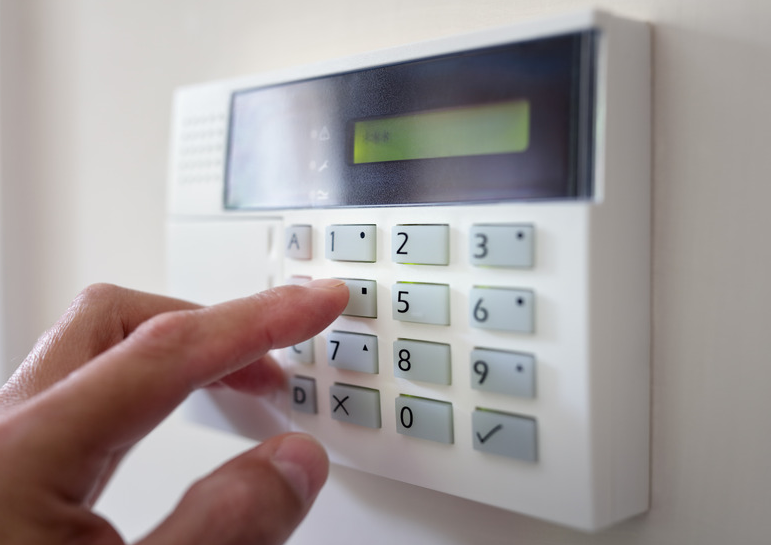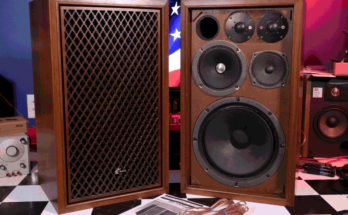1. Introduction
Relevance of the Issue
As anyone can imagine, loud alarms in their houses can be quite annoying. This is especially true when someone is busy working, trying to get a good night’s sleep, or aiming to spend a peaceful evening.
I understand why this constant noise can be muted is important, as no one would want to live in such a loud and stressful environment.
This article contains information on why and how to troubleshoot the causes of the alarms continuously making loud noises and how to maintain your security alarm system in the best possible way. Hence, it stays functional for a longer period.
2. What Is a House Alarm Beeping?
Why Alarms Beep
Most alarm systems installed in homes let owners know if there is a problem, and when the alarm sound goes off, that also indicates something. It can simply mean the battery is weak or a more critical issue.
As Military veterans say, “It gets your attention.” But if one does not know the reason behind the sound, it can stress a person out for no reason. Knowing the different kinds of beeping and the reasons behind them will be the key in resolving the case as quickly as possible.
3. Common Reasons Your Alarm Is Beeping

Low Battery
One of the most common reasons for alarm beeping is a low battery. Troubleshooting these scenarios can often mean that an alarm system relies on battery power and must be switched manually using a beeping signal to signal the start. Be on the lookout for these scoring beeping alarms, as they indicate the battery is about to die.
Faulty Sensors
Many people have uncleaned or obsolete detectors, which give rise to beep alarms. Now, moving forward, considering automotive or temperature devices, these gadgets are equipped with sensors that detect alterations. Any dust deposit build-up on these enables systems to beep in alarming repeated sounds if not adequately maintained.
Alarm System Errors
Your device’s alarm sound can result from an internal hardware error that is external to the sound program. Some reasons for this condition include a control room malfunction or a problem with a software update. Most frequently, these problems can be corrected by resetting the system.
Environmental Factors
Severe cold winds, extra moist air, or power surges can all cause real issues with your device and inhibit it from functioning and running smoothly. Such phantom items can include unintentional interference from other electrically charged devices and external interference from external sources.
4. How to Identify the Cause of the Beep
Checking the System Display
One cause of the beeping noise in alarm systems is a problem on the display screen that shows a warning code or a message. The problem can be a busy LED light or a beeping alarm that succeeds a particular code.
Understanding the Beeping Patterns
Alarm systems also emit beeps that vary in frequency according to the problem. A small single beep can mean the battery is weak and requires replacement, whereas a long-beep tone can suggest that the system has gone haywire. Analyze how the beeping varies to figure out the source of trouble.
5. Dealing with Low Battery Alerts
Replacing the Battery
A battery-assist alarm system in a home security setup beeps due to low battery levels, so replace the depleted battery with fresh batteries. Remember that most home security systems require battery changes after a few years, so follow the instructions provided by your battery system manufacturer to understand things better.
Understanding the Beeping Frequency
When it comes to systems, the internal beeping goes off at a planned frequency that is fixed in time and always fits the duration. Some systems may go off beeping once after a few seconds, while others may have constant chirping sounds. Reading the instruction manual can help you understand the workings of the system and the problems it may face more efficiently.
6. Troubleshooting Faulty Sensors
Cleaning the Sensors
Poor performance of the alarm system’s sensors sometimes causes it to go off continuously, which can be caused by obstructions and dirt particles that may settle on the sensor tip. Wiping the sensors with a cloth may help solve the issue to some extent and can be looked into.
Resetting or Recalibrating the System
If cleaning does not remedy the problem, it is recommended that you consider resetting the system to its original settings from the panel located in the control center.
7. How to Reset Your Alarm System
Step-by-Step Instructions for a Reset
- Locate your alarm’s control panel and ensure the system is armed or disarmed as per the manufacturer’s guidelines.
- Look for a reset button or option in the menu.
- Follow the on-screen instructions to reset the system to factory settings.
- Test the system afterward to see if the beeping has stopped.
If you’re unsure how to reset your system, refer to the user manual or contact customer support.
8. Alarm System Error: What You Need to Know
Software Glitches
Beeping, including false alerts and random noises, is normal in alarm systems and other tech. A simple firmware update or restart often resolves this nuisance.
Hardware Malfunctions
Beeping may also result from problems with the control panel or system wires. If these issues arise, it may be a good idea to call a professional to check and fix the board and the alarm system.
9. Environmental Factors Affecting Alarms
Temperature and Humidity
Alarms may sound false alarms due to sudden temperature changes or dampness in the air. A sudden draft can happen when air passes through windows, vents, or other openings, resulting in the alarm going off.
Interference from Other Devices
It is also possible that the alarm got muted because other appliances, such as baby monitors or routers, caused disruption by working on similar frequencies, but this has been proven to only be faint. To be cautious, reposition other appliances so they don’t affect the alarm’s functioning.
10. What to Do When the Beeping Won’t Stop
When to Call a Professional
If the intrusion detection system’s alarm sounds inhibitive and repetitive, you might need to contact an expert. They can identify malfunctions related to the control panel and wiring issues that are beyond your capacity to troubleshoot.
11. Prevention Tips to Avoid Future Beeping
Regular Maintenance of the System
Ensure that your alarm system is regularly scheduled for routine maintenance. This encompasses regular cleaning of the sensors, changing the batteries, and upgrading the system.
Testing the Alarm Regularly
It is essential to test whether your alarm works a couple of times to prevent future damage. This will help highlight a problem before it causes more harm.
12. Expert Insight on Alarm Systems
Expert Advice on Alarm System Care
We spoke with home security experts who recommend checking the batteries and sensors at least once every six months. Regular maintenance can extend the life of your alarm system and ensure its effectiveness in an emergency.
13. Case Studies: Alarm Beeping Solutions
Examples of Resolving Common Issues
According to homeowner case studies, low batteries and dirty sensors are the primary causes of beeping difficulties. The alarm interfered with a nearby microwave, and a simple device shift solved the issue.
14. The Future of Home Security Systems
Upcoming Trends in Alarm Technology
The outlook for the home security market is bright. Alarm systems powered by artificial intelligence, mobile supervision, and smart home technology will change the dynamics of alarm systems for the good.
15. Conclusion
Recap and Final Thoughts
The annoying sound of a beeping alarm may mean several of such systems need to be replaced because of only the batteries inside them or it could be more complicated internal blaring horn. Getting to the bottom of the beeping and taking relevant actions will help bring silence to your house. If routine maintenance is followed, you can avoid such disturbances in the future and guarantee that your alarm system will be properly operative when needed.





2 Comments on “Why Won’t My House Alarm Stop Beeping? Causes & Solutions”